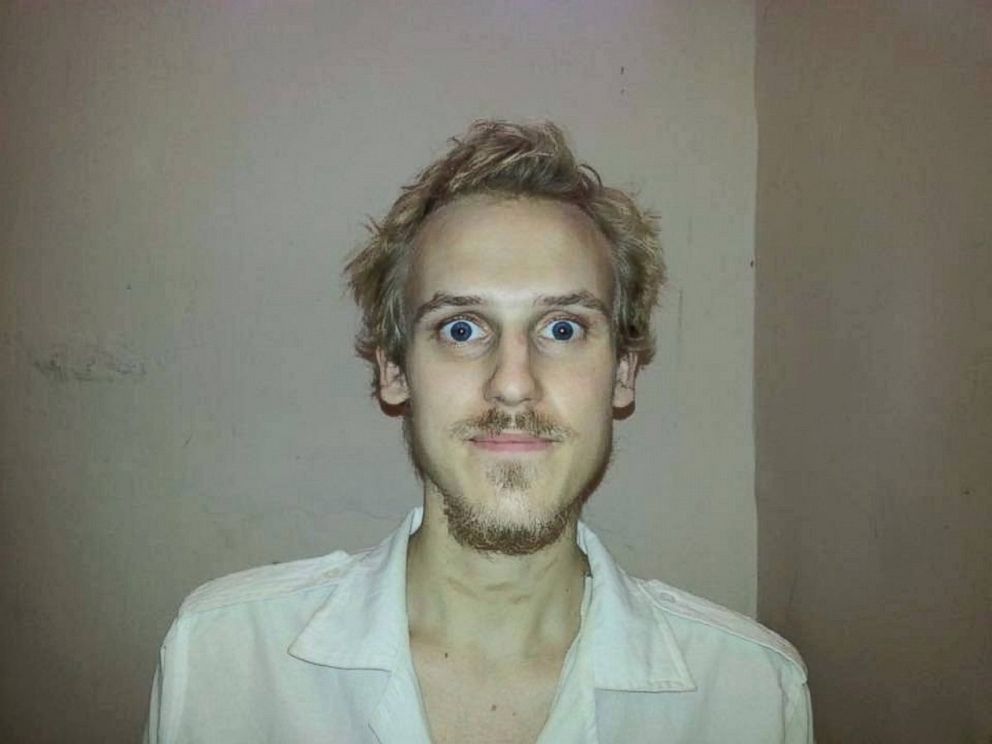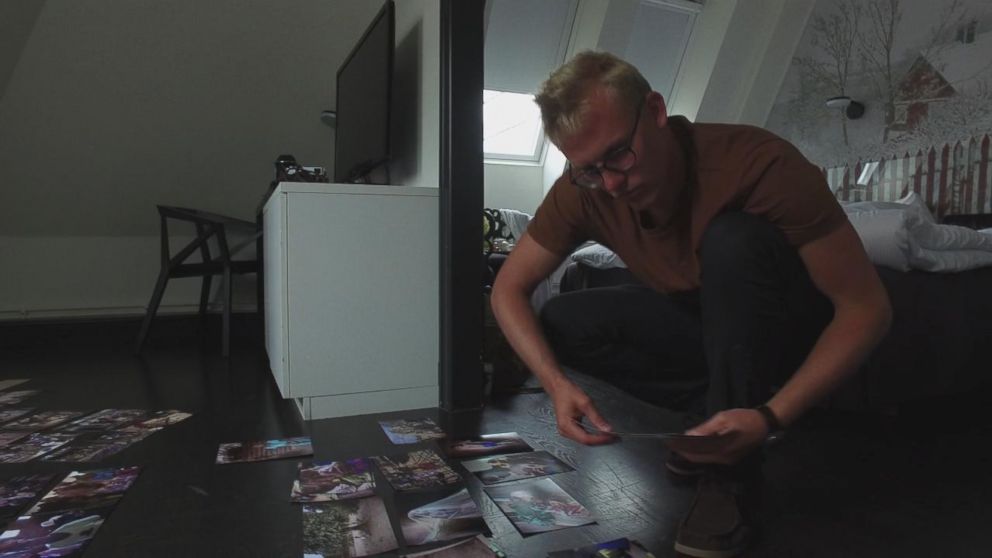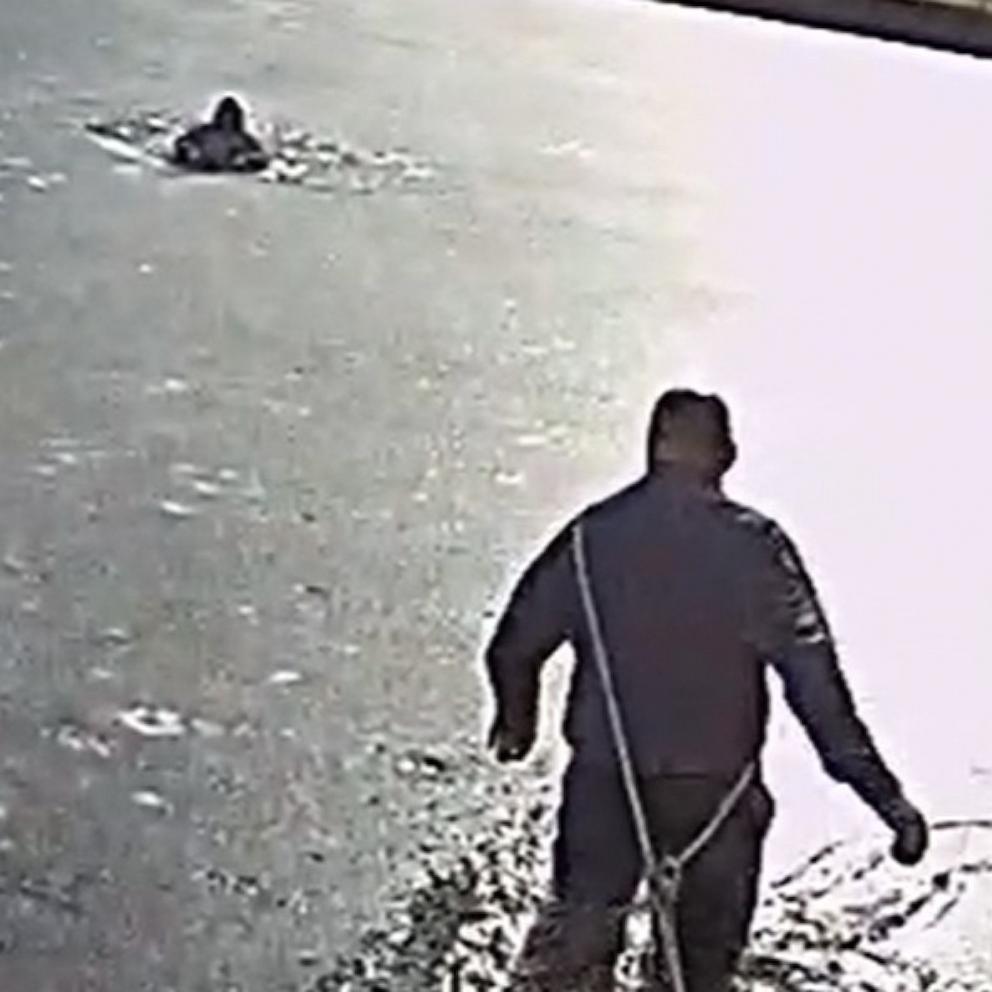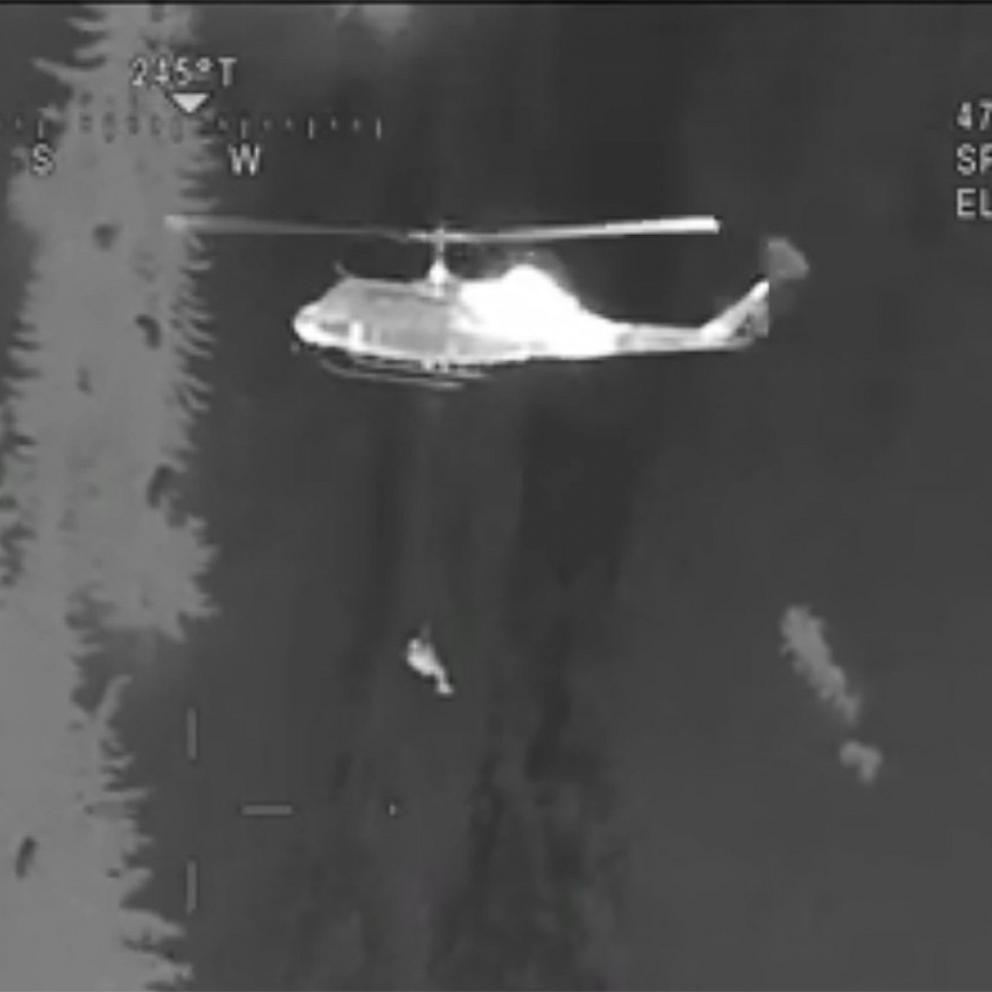Book Excerpt: 'The ISIS Hostage: One Man’s True Story of 13 Months in Captivity'

— -- A new book published this month is a dramatic account of the kidnapping and torture of Danish freelance photographer, Daniel Rye Ottosen, held hostage by ISIS in a Syrian oil refinery-turned-prison in one small room with Americans James Foley, Steven Sotloff and Petter Kassig and next to American Kayla Mueller. What follows is an excerpt of Ottosen’s story. He discusses his ordeal and that of the American hostages with ABC News’ Chief Investigative Correspondent Brian Ross on ABC News’ “20/20” Friday, Aug. 26, at 10 p.m. ET, “The Girl Left Behind.”
By Puk Damsgard
Daniel and his fellow prisoners had succeeded in exchanging brief messages with Kayla and the other woman who were in the cell next door. They developed a system where they hid small pieces of paper in the toilet. When the messages had been read, they tore them into pieces and ate them.
Sometimes they were serious messages; other times they played Trivial Pursuit. The women would leave a piece of paper with a question such as ‘Who played the role of Aragon in Lord of the Rings?’ The men would hide the answer and a counter-question when they were next allowed to go to the toilet.
Daniel considered these communications to be extremely dangerous, but it also felt right to try to keep everyone’s spirits up. He mostly just concentrated on his training, which was easier to do now, because there was more space in the cell. The Italian Federico had been the latest to leave the prison. Apart from the women the only ones left were Daniel, German Toni and the six Brits and Americans.
On 2 June the Beatles launched a new cycle of violence. At four in the morning they came storming in without the usual warning and ordered the hostages to sit with their backs to them and their hands four inches from the wall. They had to go to the toilet one at a time.
When it was Daniel’s turn, he put on his sandals and grabbed a piss bucket, but as soon as he came out into the corridor, he was struck several times with a truncheon. He ran into the toilet, emptied the bucket, peed, washed his hands and ran back towards the cell, the Brit with the truncheon close behind him. Daniel threw off his sandals and walked onto the blankets with the piss bucket in his hand.
‘Why are you doing that?’ cried the guard and hit him hard four more times with the truncheon as punishment.
The Beatles introduced this new routine around toilet visits four times a day. The hostages woke up in a panic early in the morning, ready for the Beatles flinging the door open and beating them on their way to the toilet. It was worse still when the violence struck randomly and unpredictably outside the toilet visits.
‘Who is the Danish boy?’ shouted one of the Beatles. Daniel didn’t dare answer.
‘Who is the Danish boy?’
‘Me,’ he whispered.
‘You’re from the country with the Muhammad cartoons!’ they shouted and hit him three times.

This sort of thing happened at all times of day and night and the violence befell everyone. The Americans, James, Steven and Peter, sat in the corner of the cell and clung to each other. Everyone was beside themselves. And suddenly the Beatles were there again.
‘Who wrote these letters?’ shouted Ringo. He didn’t wait for an answer, but began clubbing everyone on the back of the head. They must have found the small pieces of paper with the messages to the women in the toilet.
Only a brief moment passed before they stomped into the cell again and gave Daniel and James thirty dead legs each. The dead legs weren’t like those Daniel and his friends had given each other in school. They came with such violent force that he feared they would break a bone. He lay on his blanket and wept, and neither James nor he could walk the following two days.
The hostages moved their sleeping places as far away from the door as possible, and to overcome the fear that hung in the air Daniel told stories about the European Championships in gymnastics. He also invented a method of relaxation that he used on the others. He squeezed his fellow prisoners’ skin so hard between their thumb and forefinger that the pain was excruciating. He held on for one minute. When he let go, they relaxed. The Beatles were becoming more officious, searching the room regularly and forbidding the prisoners to do just about everything. Daniel wasn’t allowed to exercise any more.
‘You’ve gotten bigger!’ they shouted, and took away food and the card games from the prisoners.
The daily routines that the hostages had built up and cherished despite everything were being irrevocably ripped to shreds by the Beatles.
Daniel’s Family in Denmark Raised Over $2 Million for His Release
Anita had to think creatively. Even though she was grateful and proud that the family had been able to collect many millions of kroner, it still wasn’t enough and donations had dropped so much that she feared the family wouldn’t be able to pay to free Daniel. She had to get more people to take an interest in her brother.
In the middle of May an anniversary celebration was held for Vesterlund Youth School’s former pupils and Anita set up a stand where she sold Daniel’s pictures and gave a speech, in which she quoted his recent more personal letter from Syria.
But Anita had to admit that Daniel’s plight wasn’t attracting the attention it once had. Their network of contributors had given all they could, and the event only brought in a modest amount. The family had raised about 80 per cent of the ransom and Anita felt that the time was ripe to contact large companies and business people. Since they had already collected most of the amount, it seemed less presumptuous to ask wealthy people who didn’t know the family, whether it be individuals or companies, if they could help.
She took the chance and went all-in with a new letter that described the details of Daniel’s situation, which she urged them not to bring to public attention while the case was unresolved. In the document, she included the first proof-of-life image of Daniel and she revealed the ransom amount, as well as how much the family had collected – and she described the video from the grave with the threat that Daniel could be killed if they didn’t pay.
Within days, the donations began coming in.
There were apparently some people in Denmark who were prepared to go to great lengths to help a person in need and, on 22 May, the family submitted a new offer to the kidnappers.
‘We really hope that you will consider this offer and respond,’ wrote Arthur and the family in the email. They offered €1,710,000 (£1,300,100), equivalent to more than 12.8 million kroner.
Three days later the kidnappers responded, briefly and unmistakably: ‘Only 300,000 Euros left to go.’
They enclosed an audio file in which Daniel said ‘Hurry up’ – and added that they would more than double the demand to €5 million. The negotiations, which in fact were not negotiations but an absolute demand, were going in the wrong direction.
Anita checked her mobile every fifteen minutes for messages and answered calls, day and night. She couldn’t even sit and have dinner with her boyfriend for half an hour without being interrupted.
In late May she took a day off from fundraising and went to the cultural festival in Odense Harbour. There were stalls with organic honey, folk dancing and a climbing wall, and Anita played a game of kayak polo. During the hour she was in the water, her mobile was in her bag in the judge’s tent. She let go of the battle between life and death for a moment and felt only her body moving around in the kayak.
When she came ashore, her bag had gone. Thieves had zipped open the tent and snatched the bag containing her mobile – her lifeline to people who were trying to help the family. The latest letters she had sent out contained only her and their lawyer’s contact information, so as to spare Susanne and Kjeld.
Anita took the situation with her usual stoic calm and did everything to get back up and running, but it wasn’t without obstacles, especially when it turned out that her email account had been hacked. She couldn’t get her Gmail account to recognize that it was she who was logging in and there was no customer service department to call. She got hold of someone who sold advertising for Google and berated him with her story of a younger brother who was being held hostage in Syria and would be killed unless they collected enough money. The employee put her in touch with the right people. When she was finally able to log on to her email account, everything was in Arabic and emails to her had been deleted or automatically forwarded to the thieves’ email address. The worst thing was that the thieves had sent an email out to all her contacts, including those she had emailed in recent months about the fundraiser, stating that Anita was in distress and needed the money.
In the midst of this chaos, the family received a new email from Syria filled with threatening capitals.
We hope for your sake that you’re checking this email frequently because AS OF THIS POINT ON you have 24 hours to have the FULL 2 Million EUROS CASH READY!!
If the family didn’t pay the full ransom by the deadline, the kidnappers would add on another €5,000 for each day they had to wait. According to them, this punishment had been meted out by a sharia court and the daily penalty wasn’t negotiable.
Puk Damsgard is the author of The ISIS Hostage, Atlantic Books, out this month. She is the Middle East correspondent for the Danish Broadcasting Corporation based in the Cairo.
Daniel Rye Ottosen continues to work as a freelance photographer, recently returning from Malawi where he is documenting drought and food shortages. He sits down with ABC News Chief Investigative Correspondent Brian Ross in the ABC News’ “20/20” hour “The Girl Left Behind” to discuss the plight of one of his fellow hostages, Kayla Mueller.




